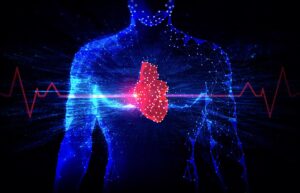 If you or anyone you know is an ischemic stroke survivor, you may be aware of the severe long-term health complications. Unfortunately, a new study suggests 20% of those affected by ischemic strokes suffer from irregular heart rhythms that can increase the likelihood of further disability or death.
If you or anyone you know is an ischemic stroke survivor, you may be aware of the severe long-term health complications. Unfortunately, a new study suggests 20% of those affected by ischemic strokes suffer from irregular heart rhythms that can increase the likelihood of further disability or death.
In this blog post, we will discuss what an ischemic stroke is; the signs and symptoms to watch for; who it affects most often, and how to reduce your risks for a potentially devastating second event with preventative measures like monitoring yourself for irregular heartbeat patterns.
Advertisement
What Is Ischemic Stroke?
Ischemic stroke is one of the most common types of stroke. It’s caused by a blockage in a blood vessel supplying blood to the brain, depriving part of the brain of oxygen and nutrients necessary for normal functioning. A blood clot typically causes this, but it can also be due to plaque build-up in the arteries, leading to narrowing or blocking of the arteries.
The ischemic stroke symptoms include sudden weakness or numbness on one side, confusion or trouble speaking, difficulty swallowing and unequal pupils in both eyes. Treatment is focused on restoring blood flow to the affected area as soon as possible and is often successful if identified and treated quickly enough.
Ischemic stroke is the most common type of stroke and usually affects people aged 60 or older. Other risk factors for ischemic stroke include diabetes, hypertension, high cholesterol, cardiovascular disease, oral contraceptives, and smoking.
The Study
The new three-year study from Harvard Medical School included nearly 500 ischemic stroke survivors of an average age of 67 with no previous atrial fibrillation diagnosis. Participants were divided into two groups. The first received an insertable cardiac monitor that recorded heart rhythms 24 hours a day for three years. The second group received standard medical treatment, which did not include continuous heart monitoring. Follow-up care was given every six months for three years.
Researchers found that the continuous cardiac monitoring device detected a-fib in more than 20% of the participants during the study’s three years. A-fib was only detected in the standard treatment group in 2.5% of participants. In patients with a-fib, an episode of 10 minutes or more was found, and more than two-thirds had an episode lasting more than one hour.
Most patients in the study reported no signs of atrial fibrillation, but symptoms can include
heart palpitations, dizziness, fatigue, chest pain, and shortness of breath.
“Relying on routine monitoring strategies is not sufficient, and neither is placing a 30-day continuous monitor on the patient. Even if fibrillation is ruled out in the first 30 days, most of the cases are missed—because, as we found, more than 80% of the episodes are first detected more than 30 days after the stroke,” explained lead author Dr. Lee Schwamm.
Researchers hope this study will drive healthcare providers to understand the risk of future strokes better to help prevent them in the future.
While ischemic stroke is often associated with genetics and aging, there are measures people can take to reduce the risk of ischemic stroke. One way is through diet and exercise, which help maintain healthy cholesterol levels and blood pressure. Smoking is another factor that should be addressed – quitting smoking is necessary to improve cardiovascular health.
Advertisement
Additionally, keeping blood sugar levels in check is vital for reducing ischemic stroke risks; if diabetes is present, managing it becomes even more important. Finally, regular checkups with your doctor can help identify any existing high-risk factors that may need to be addressed to prevent ischemic stroke.
Maintaining Brain Function and Heart Health
Many factors can take a toll on the brain, and suffering an ischemic stroke can be one of them. It can often affect concentration, memory, and overall cognitive function. The Smart Pill can help counteract these effects through nine ingredients that help support, nourish, and maximize brain health and cognitive function. These include ginkgo biloba, huperzine A, bacopa extract, rosemary extract, and a B vitamin complex. This unique formula helps boost circulation, fight free radicals, and help to promote clear thinking.
Keeping the heart strong and healthy is vital for enjoying a high quality of life as you age. Heart Rescue was designed to help support and promote cardiovascular health using a variety of ingredients, including omega-3 fatty acids, CoQ10, magnesium, and hawthorn extract. This formula’s health benefits can help strengthen the heart muscle, support circulation, and help reduce the risk of heart disease.
